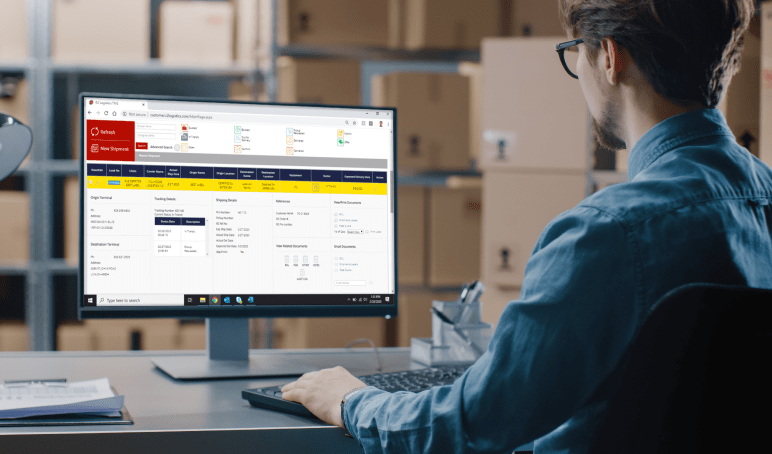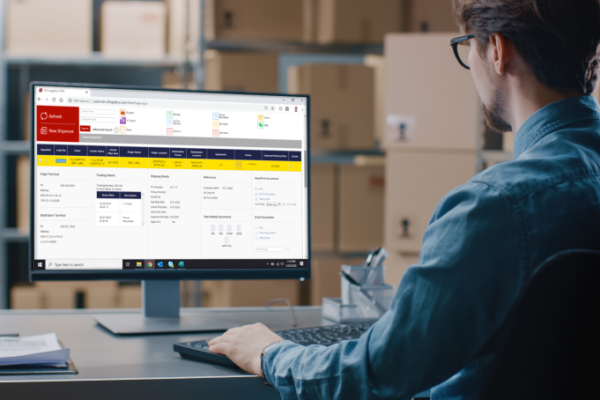Companies looking to optimize their supply chain management strategy should look no further than implementing a Transportation Management System. A Transportation Management System, or TMS, is a system that can enhance operations, boost sales, and enhance customer service for any organization involved in logistics. It also helps businesses transport freight accurately and affordably from the point of origin to the point of destination.
With globalization and e-commerce growth opening new markets around the world, the time has come for organizations to take advantage of TMS solutions. A Transportation Management System is fully capable of improving logistics service and cost, as well as bringing shipment transparency. TMS functionality, configuration and cost are now in the buyer’s favor thanks to the advent of software-as-a-service; making it a viable option for any company. More specifically, smaller organizations still using manual processes to manage their freight have the most to gain by utilizing a TMS. Relying on in-house know-how using spreadsheets and typical communication efforts can result in excess operational errors and time spent.
To get up and running quickly, these businesses can adopt a cloud-based TMS. By doing so they can receive rates, book and track shipments all on a single platform.
Top 5 Benefits Companies Can Expect from Implementing a Transportation Management System:
1. Reduce Freight Expenses
One of the greatest benefits that a Transportation Management System provides is reducing freight spend. As a supply chain visibility tool it helps shippers recognize disruptions as they arise. Another huge benefit is its ability to decrease resource costs. Tasks typically performed by accounting or shipping employees, such as validating charges, can be processed automatically through the Transportation Management System.
2. Increase Customer Service
A Transportation Management System can help serve customers better by using data to track key performance indicators such as on-time delivery and damage rates. This information can then be used to eliminate problem transportation partners or in-house drivers and replace them with high performing alternatives.
3. Track Deliveries in Real Time
A TMS provides the ability to view where shipments are in real-time. Organizations can receive alerts for shipment deliveries or delays. Having the ability to identify service disruptions gives businesses the advantage of knowing immediately when they happen so adjustments can be made. Tracking information can also be used to determine the amount of time a route takes for creating efficient route schedules.
4. Improved Billing Processes
A Transportation Management System allows for electronic invoicing, auditing, and processing. When an invoice is received, the TMS should be able to compare it to the original shipment rate. If they equal, the system can approve for payment and trigger a customer bill. This simplifies accounting processes and allows the accounting staff to focus solely on exceptions.
5. Business Insights
A TMS can provide a wide range of data and turn it into accessible knowledge that can be used across the organization. Standard reports can be used to track KPI’s and custom reports can be created to analyze things like rate discrepancies or on-time service performance. Data can pinpoint why trends may be outside of expected results or how to expand on positive outcomes.
To learn more about the R2 TMS and how it can help your business, click here to request a demo.
R2 Logistics Has the Tools You Need
R2 Logistics is superior to other third party logistics companies because we utilize technology to ensure the highest level of accuracy and service with our customers. With an integrated customer portal, our tools and TMS deliver real-time connectivity across the supply chain.
Our TMS technology solution is built to overcome any supply chain requirement; no matter the difficulty. Gain the visibility and insight to make well-informed decisions to move your company towards greater success.
The R2 Logistics TMS is capable of negotiated rates, spot quotes, freight pay and auditing, prepay and add, and carrier relationship management. With our TMS, you can track the location of your freight. Receive full visibility of your supply chain and enable better service for your customers. You can also book shipments directly with the carrier of your choice
Related Posts
How to Implement a Continuous Improvement Strategy for Your Supply Chain
A continuous improvement strategy can help your supply chain become more resilient, which will strengthen...
Read MoreThe Ins and Outs of the Seasonality of Freight
Carriers, shippers, and businesses must adapt to seasonal freight trends in order to succeed in...
Read More5 Critical Supply Chain KPIs and Metrics You Should Be Tracking
In this guide, we identify five supply chain KPIs that every business should be tracking...
Read MoreWill Tesla’s Electric Semi-Truck Make a Significant Impact on the Logistics Industry in 2022?
When Elon Musk announced the Tesla semi-truck in 2017, the logistics world was in awe....
Read More




